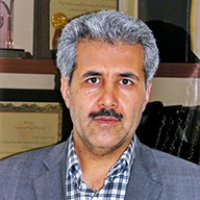An Analysis of the Pragmatist Approach to the Concept of Relevance in Information Retrieval
Intruduction:
The aim is to briefly describe the pragmatist philosophy and to explore and analyze the pragmatist approach to the concept of relevance in information retrieval.
The article is a conceptual analysis that uses the Theory of Activity and literature review to explain what is happening in practice so that a person in need of information can solve his or her information needs. The theory of Activity is a comprehensive theory, by which the pragmatist approach of relevance concept is explained.
The system-oriented approach and the user-oriented approach have their origins respectively in the positivism and the hermeneutics. Only the studies on the evaluation of information retrieval (relevance) will be successful which have benefited both from the system-oriented approach and user-oriented one in studies in which all aspects of the relevance concept are considered. Pragmatists argued that a false dichotomy exists between two quantitative and qualitative approaches, and one may combine the two approaches so that the combination focuses on action. According to the pragmatic school, a document which is used is relevant. On the one hand, A can be considered relevant to task 1, only if A can help a person to achieve his/her goal and answer his/her information needs. On the other hand, that document in terms of its facial and intrinsic features should be in accordance with the need of the person who needs information, accepted by the culture of the intended community and accessible for the individual who needs information. In other words, a document that actually meets information needs is actually relevant.
Relevance is a complex concept and various factors affect its final outcome. Hence, in spite of numerous studies on the concept of relevance, further research is needed on this subject. Finally, one can say that thinking of the philosophy of science is necessary to understand the concept of relevance according to whether the purpose of science is to describe what is actually happening and is easily visible to us, or science should explain what is not readily apparent, and to determine it.
-
Examining the Degree of Compliance of Cybernetic Components in the Comprehensive Statistical System: A Case Study of Iran Public Libraries Foundation
Mostafa Ahangar*,
Research on Information Scienc & Public Libraries, -
Analyzing the herd behavior of social network users in sharing and using information
Soheyla Delbari, *,
Journal of Information Processing and Management, -
A Review of the Use of Ontology in the Organization of Indigenous Agricultural Knowledge
Solmaz Forutani, *, Mohsen Kahani
Librarianship and Informaion Organization Studies, -
Design of Ontology of Indigenous Knowledge on Agriculture in Iran with an emphasis on video retrieval
Solmaz Forutani, *, Mohsen Kahani
Library and Information Science Research,




